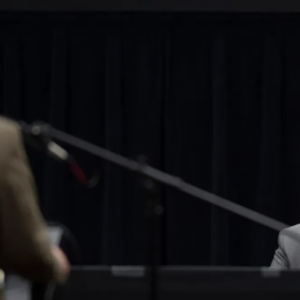In a notable ruling, a federal judge recently exonerated Goldin Auctions, its founder Ken Goldin, Netflix, and the makers of the reality TV series “King of Collectibles” from a copyright infringement lawsuit. The claim was instigated by Gervase Peterson, erstwhile contestant of “Survivor.” He contended that he had initially expressed an analogous concept to “King of Collectibles’ to Goldin back in 2019.
Unwrapping the controversy, Peterson’s conceptual proposal, intriguingly called “The Goldin Boys,” allegedly found its way into Wheelhouse Entertainment’s production plans, and eventually, into Netflix’s acquisition portfolio. What bothered Peterson was the eerie likeness between his brainchild and the resultant show, which was recently celebrated on Netflix with the release of its second season.
These brewing allegations were not sprouted overnight. Indeed, Peterson’s grievances stem from his interaction with Goldin during 2019 and the subsequent disappearance of their communication mid-way through 2020. Around the same time window, a seemingly duplicitous version of Peterson’s concept oddly found its roots. Yet, the defense maintained a straightforward stance that the reality show, offering a peek into Goldin Auctions’ operations and Goldin’s life, was a derivative of generic ideas that don’t earn protection under the Copyright Act.
Judge Christine O’Hearn of the New Jersey federal district court firmly grounded her judgment based on this argument. Using a legal term, scènes à faire, she expounded that certain elements are typical to a genre and, consequently, do not qualify for copyright protection. A considerable portion of reality television terrain, including daily business chores highlighted in “King of Collectibles,” falls into this arena.
Adding another dimension to her argument, Judge O’Hearn emphasized that reality shows’ common elements and real-life subjects are often exempt from protection. Punctuating her decision with past legal precedents where parallel scenarios unfolded, she dismissed Peterson’s case, thereby re-establishing the intricacies of copyright law.
Despite the legal ordeal, “King of Collectibles” has emerged unscathed, rather flourishing in the entertainment industry. It recently bagged an Emmy nomination, underscoring its popularity and hence, making the victory more significant.
While the lawsuit’s dismissal manifested the complexities enveloping copyright laws, it also offers insightful deliberation around intellectual property rights. More than ever, we witness a surging trend in reality television programming based on seemingly “generic” ideas. This current verdict navigates these murky waters, underlining that while presenting unique content is essential, it’s equally pivotal to tread carefully within the confining walls of copyright constraints.
On the one hand, it’s essential to protect individual creativity; on the other, limiting popular themes under propriety laws can restrict the flourishing entertainment landscape. Like an unfathomable maze, the copyright debate continues to navigate through thorny paths, raising poignant questions that demand collective introspection. The conclusion? Creativity continues to bloom, albeit within the labyrinth of legal webbing. At the end of the day, as the thrilling “King of Collectibles'” saga illustrates, the quest to strike the perfect balance endures.






